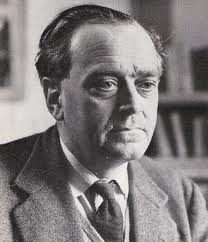The D Society
The D Society is the main research seminar in the faculty for Philosophy of Religion and Ethics. It is chaired this term by Dr Daniel Weiss dhw27@cam.ac.uk

Papers are invited from a wide range of philosophers, philosophers of religion and ethicists, both internal to Cambridge and from outside. A short response paper from a graduate student or faculty member usually opens the discussion.
Founded in 1921 by Professor James Bethune-Baker, the D Society was originally a subscription society intended to supplement the (then) predominantly biblical emphases of the faculty to include doctrinal and philosophical discussion. Under Professor Donald MacKinnon's chairmanship it became the main locus in the university for the interaction between senior members of the Philosophy and Divinity Faculties; and under Professor Nicholas Lash it was transformed into a regular senior seminar in the faculty.
The seminar is open to all interested members of the University, and to visitors who may wish to attend. Graduate students in Philosophy of Religion and Ethics are encouraged to come from the beginning of their programme and to make the seminars, and the enjoyable tea that follows, a place of regular interaction.
Members of the D Society are also encouraged to attend the regular public lectures in Philosophy of Religion, including the Stanton Lectures.
Image used on this page: Title: Donald Mackenzie Mackinnon. Creator: Unknown. Source: https://tinyurl.com/26jp9ut9. Licence: Public Domain.
The Graduate Seminar in Philosophy of Religion
Michaelmas Term 2025
D SOCIETY
Please contact faculty-office@divinity.cam.ac.uk with any questions about the seminars
Friday 24th October, 4.00 – 5.30 p.m. – Prof. Luce Irigaray, ‘What culture could arise from touch as mediation?’
This seminar will take place in the Runcie Room.
Tea will be served in the Selwyn Room at 3.30 p.m., and the seminar will be followed
by a book launch for The Mediation of Touch.
Friday 7th November, 12.30 – 2.00 p.m. – Prof. Susannah Ticciati (Kings College London), ‘Midwife, Gadfly, Electric Ray: Augustine through the lens of Arendt’
Lunch in the Selwyn Room from 12.30 p.m.
Wednesday 19th November, 2.30 – 4.00 p.m. (jointly with the Christian Theology Research Seminar) - Fr. Thomas Joseph White (Angelicum, Rome), ‘The Cross as an Epiphany of God - Aquinas on Atonement’
Friday 21st November, 12.30 – 2.00 p.m. - Prof. Agata Bielik-Robson (University of Nottingham), ‘The Universal Structure of Revelation: From the One to the Unique (Cohen, Levinas, Laplanche)’
Lunch in the Selwyn Room from 12.30 p.m.
All welcome
